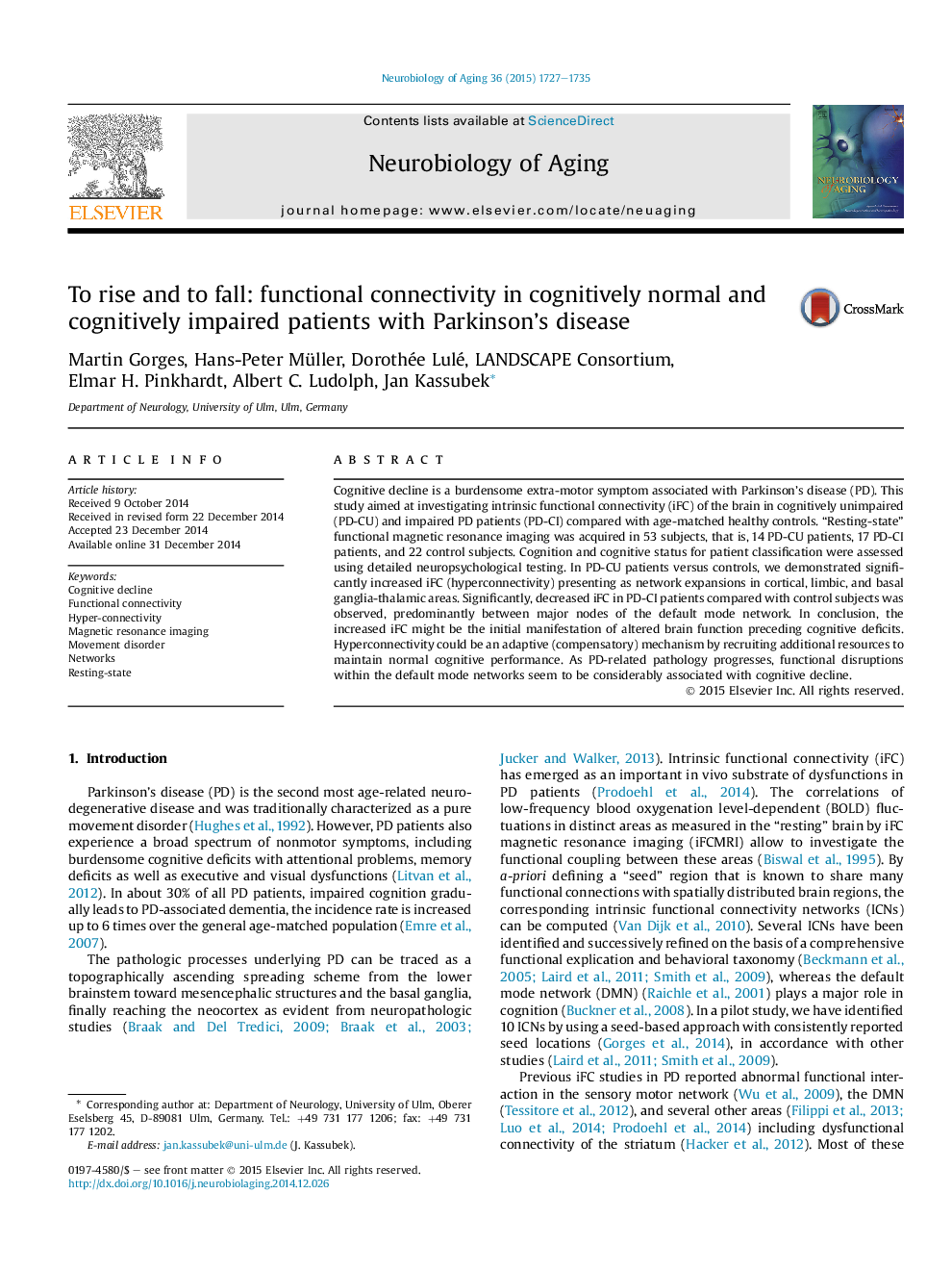| Article ID | Journal | Published Year | Pages | File Type |
|---|---|---|---|---|
| 6804382 | Neurobiology of Aging | 2015 | 9 Pages |
Abstract
Cognitive decline is a burdensome extra-motor symptom associated with Parkinson's disease (PD). This study aimed at investigating intrinsic functional connectivity (iFC) of the brain in cognitively unimpaired (PD-CU) and impaired PD patients (PD-CI) compared with age-matched healthy controls. “Resting-state” functional magnetic resonance imaging was acquired in 53 subjects, that is, 14 PD-CU patients, 17 PD-CI patients, and 22 control subjects. Cognition and cognitive status for patient classification were assessed using detailed neuropsychological testing. In PD-CU patients versus controls, we demonstrated significantly increased iFC (hyperconnectivity) presenting as network expansions in cortical, limbic, and basal ganglia-thalamic areas. Significantly, decreased iFC in PD-CI patients compared with control subjects was observed, predominantly between major nodes of the default mode network. In conclusion, the increased iFC might be the initial manifestation of altered brain function preceding cognitive deficits. Hyperconnectivity could be an adaptive (compensatory) mechanism by recruiting additional resources to maintain normal cognitive performance. As PD-related pathology progresses, functional disruptions within the default mode networks seem to be considerably associated with cognitive decline.
Keywords
Related Topics
Life Sciences
Biochemistry, Genetics and Molecular Biology
Ageing
Authors
Martin Gorges, Hans-Peter Müller, Dorothée Lulé, LANDSCAPE Consortium LANDSCAPE Consortium, Elmar H. Pinkhardt, Albert C. Ludolph, Jan Kassubek,
